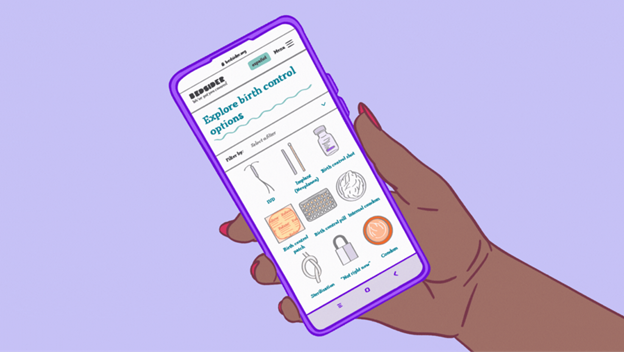Start a Conversation About Birth Control
Parents and champions are often the first point of reference for young people when it comes to their health and relationships. Which is why it’s so important to be ready to discuss birth control options when the time is right!
We know that starting these conversations can be tricky, but the fact is engaging in open and honest conversations about birth control empowers young people to navigate the world of sexual health, prevent unplanned pregnancies, and stay safe from sexually transmitted infections (STIs). Even if it wouldn’t be your choice for them to have sex in high school, the reality is that you want to make sure the young people in your life have everything they need to be safe if it does happen. Plus, talking about birth control can help you build a foundation to have open discussions about their relationships and questions in the future!
Even if your young person isn’t interested in becoming sexually active any time soon, they should know that birth control isn’t just for safer sex. Birth control can help regulate and reduce menstrual bleeding, offering them a sense of control over their bodies and comfort during a time that can often be accompanied by discomfort and inconvenience. Hormonal contraception can also help alleviate acne problems and provide relief from period cramps, making their daily lives more manageable and less painful.
Whether they are interested in birth control for safer sex or its non-contraceptive benefits, bringing birth control into the conversation can help you create an atmosphere where young folks feel comfortable seeking guidance and support. Here are four tips for a successful discussion:
Create a Safe and Non-Judgmental Space
Make it clear that your discussions about birth control are judgment-free. Encourage your young person to ask questions and express their thoughts without fear of criticism. Open and honest communication fosters trust and makes them more likely to seek your guidance.
Present Their Options
Provide a comprehensive overview of the different birth control methods available, such as condoms, pills, implants, and IUDs. You don’t have to be an expert — our Bedsider.org platform offers all the details about each method in a way that teens will understand. You can do research together and find out what they are looking for in a method. Discuss the pros and cons of each option and emphasize that the choice should align with their unique needs and preferences. You should also make sure to cover emergency contraception!
Address the Importance of Safe Sex
Ensure your young person understands the significance of using birth control not only to prevent unplanned pregnancies but also to protect against STIs. Make sure they understand that hormonal methods will not protect them against STIs and that the most common symptom of an STI is no symptoms at all! External condoms and internal condoms will prevent pregnancy and STIs, while dental dams and single-use latex undies only offer STI protection. They could also consider going on pre-exposure prophylaxis, also called PrEP, one day to prevent HIV.
Empower Them to Take Control
Encourage your teen to take an active role in their sexual health. This includes seeking medical advice, visiting health care providers, and researching reliable resources like Bedsider.org for accurate information. They should walk away from your conversations with the confidence to make informed decisions about their bodies and come back to you with their ongoing questions. The goal should be to foster a sense of autonomy, where they feel comfortable taking charge of their sexual health journey while having your unwavering support.
Our hope that is armed with these tips, you can empower your young people to join our annual Thanks, Birth Control celebration on Wednesday, November 15th! Remember, engaging in conversations about birth control with young people is an essential aspect of guiding them toward a safe, informed, and responsible approach to their sexual health.



